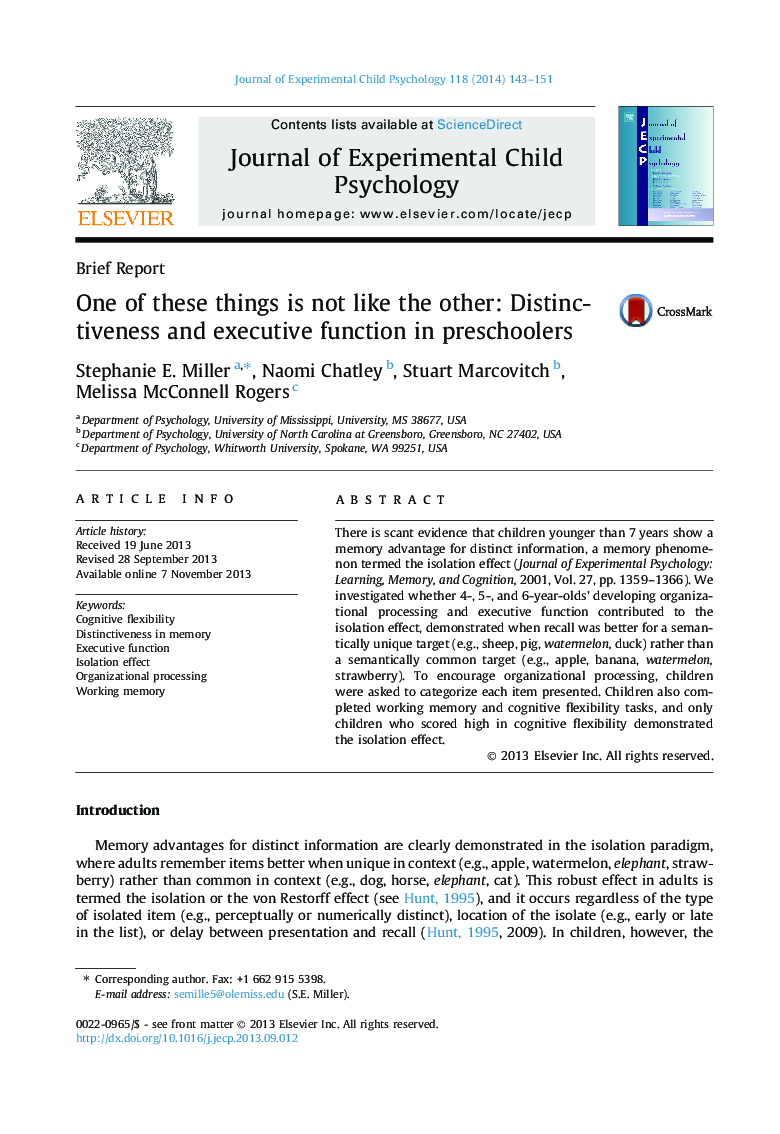| Article ID | Journal | Published Year | Pages | File Type |
|---|---|---|---|---|
| 918107 | Journal of Experimental Child Psychology | 2014 | 9 Pages |
•Preschoolers remember distinct words better when list items are categorized.•A memory advantage for distinct items is related to better cognitive flexibility.•Larger working memory spans predict greater overall list recall.
There is scant evidence that children younger than 7 years show a memory advantage for distinct information, a memory phenomenon termed the isolation effect (Journal of Experimental Psychology: Learning, Memory, and Cognition, 2001, Vol. 27, pp. 1359–1366). We investigated whether 4-, 5-, and 6-year-olds’ developing organizational processing and executive function contributed to the isolation effect, demonstrated when recall was better for a semantically unique target (e.g., sheep, pig, watermelon, duck) rather than a semantically common target (e.g., apple, banana, watermelon, strawberry). To encourage organizational processing, children were asked to categorize each item presented. Children also completed working memory and cognitive flexibility tasks, and only children who scored high in cognitive flexibility demonstrated the isolation effect.
